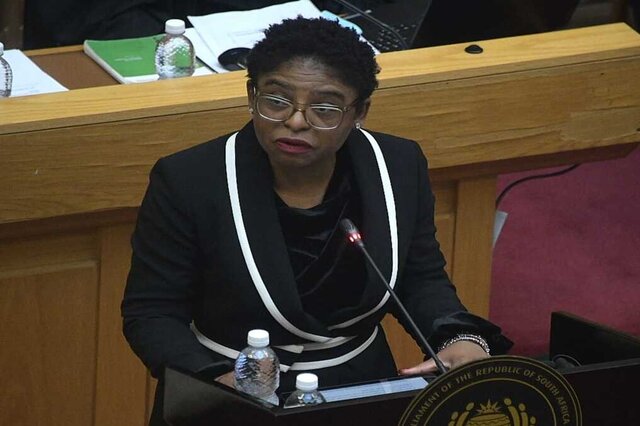Cape Town — Minister in the presidency, Khumbudzo Ntshaveni, delivered the Government Communication and Information System (GCIS) budget vote and encouraged South Africans to follow in the footsteps of the government.
Ntshaveni said all South Africans should follow the same mandate the Government of National Unity (GNU) sought to carry out in the seventh administration, to create a better South Africa, in the same way political parties did following the general elections, SA Gov News reported.
After no party won an outright majority, 11 parties formed the GNU tasked with taking the country forward. Ntshaveni said all South Africans must follow the mandate to create a better country for everyone.
“The historic mandate which we are granted to be the seventh administration and the seventh parliament is not confined to political parties. But this is a national effort in which all South Africans must participate as each of us acts to create the South Africa in which we wish to live, raise our children, and exercise our economic skills following the general elections.
“This mandate must build on the great strides we have made since 1994 as reflected in the Census 2022 results which paints a picture of a society on the move and which reflects improvements across most indicators despite the challenges confronting us,” she said.
This historic mandate is not confined to political parties represented in this parliament, but this is a national effort in which all South Africans must participate, as each of us act to create the South Africa in which we wish to live, raise our children and exercise our… pic.twitter.com/obly2MBYvA
— South African Government (@GovernmentZA) July 12, 2024
She explained that the GCIS will dedicate its expertise and resources to supporting the work of the GNU so South Africans are given the right information to move forward as a country. The first task is for citizens to be educated on the establishment of the seventh administration, which is unprecedented in the country’s history.
“As part of the new administration and with an equally inclusive cohort of communication professionals, GCIS will spearhead a well-functioning communication system that prioritises informed and empowered citizens,” she said.
The budget for the GCIS over the next three years of the Medium Term Expenditure Framework (MTEF) amounts to some R2.3 billion and the GCIS will be at the forefront of engaging citizens on the government’s work, with emphasis on mobisiling society to be part of the unity, change, and progress in the country.
Ntshavheni laid out some of the plans the department will embark on to ensure that every citizen has access to information.
“GCIS has put forward bold and decisive plans to use the strong communications system it has developed over the years to ensure that South Africans remain abreast of key developments that take place within the country.
“The department will…use communication to help citizens across the length and breadth of our nation to participate in and enjoy the benefits of our hard-won democracy and freedom. It will share critical information on government services and programmes as well as create opportunities to open the economy to more South Africans,” she said.
” I deliver the Budget Vote of the Government Communication and Information System for the 2024/25 financial year, in the full realisation that the task before us is a mammoth one. In the coming period, the GCIS will have to be at the forefront of engaging citizens on the work of… pic.twitter.com/hR3enC75fE
— South African Government (@GovernmentZA) July 12, 2024
Ntahsaveni revealed that one of the tasks the government-wide communication system has is to rebuild “trust between citizens and the government the nation has put in place”.
She said the department will have to motivate South Africans to replace cynicism and suspicion with active citizenship, social investment, and confidence in the future.
Ntshavheni emphasised that the developments seen across South Africa since 1994 are “not by chance” but are a result of concerted government programmes and efforts.
“Today millions of households have access to housing, water, sanitation, and electricity when compared to 1994. Our policies have facilitated the greater economic transformation and the empowerment of previously disadvantaged individuals,” she said.
The government has also introduced laws for workers’ rights, employment equality, and broad-based black empowerment (BBBE), with strong investments in infrastructure to achieve economic growth, but there are still challenges.
“This is a journey that has had and will have many facets into the future,” she concluded.
Follow African Insider on Facebook, Twitter and Instagram
Picture: X/@GovernmentZA
For more African news, visit Africaninsider.com
Compiled by Matthew Petersen


